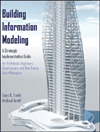Think about it, if the PC didn't exist, business probably wouldn't be as fast as it is. Some would argue that the PC has enhanced business as we know it today, that it ignited a revolution in the workplace. To my mind, that view is a little overzealous. But at the very least, the PC has rebranded America as an innovator, something that had been very lacking in previous years.
So what will the next 20 years bring? Well, we can certainly plan on seeing a transition of some magnitude. We should see a transition that will get us back out of our chairs and into common society again. A transition that will free us from the clutches of the office, the attachment to the minitower, and dare I say, the gliding of a mouse pad. This most recent stall in PC sales has certainly prompted manufacturers to rethink the future and come up with more conducive ways for us to interact with each other. The recent merger of Hewlett-Packard and Compaq is definitely a sign that things are changing. I think for the better.
The Next 20 Years
I must admit, after 20 years, you'd think that the PC industry would have done away with many of the so-called PC annoyances. I can't believe how difficult it's become to turn a PC on or off. PCs don't turn on, they take several minutes to "boot up." To shut down one, you have to use a special software command, then wait minutes. On Windows machines, the shut-down command, naturally, is under the start menu.Haven't any of these billionaire geniuses ever heard of an on-off switch? Some systems have a so-called "sleep" switch that appears to turn the computer on and off quickly. But it's only "sleeping," ready to reawaken instantly and get to work. It's a good idea, but fails almost ritually. At least 20% of the time, you have to reboot the computer, using a power switch hidden on the back or front of the machine. Microsoft and Intel have been promising for years to design PCs with real on-off switches. But, as is the case with any feature that makes things simpler, they've failed to deliver. The PC of 2021 should never need to be started from scratch.
PC applications still impose a sequential workflow that doesn't really fit the way people think. Embedded, editable objects are a big step up from what we had in 1981, but the average software package still won't allow two or more people to work on a single document or project. The PC of 2021 should never tell a user, "File is in use by another application"- it should do the work and notify other tools of the changes made.
Will the PC be displaced by a thinner, less complex device that makes more use of remote Web-service resources? I hope so. The only logical way PC enterprises can make sure this happens the way it needs to is if they begin to concentrate on the two most important aspects of computing today: memory and bandwidth. You see, to operate some of the more basic functions that people think matter (word processing, e-mail, etc.), adding a faster processor really doesn't accomplish much. To run remote Web-based solutions, you need high amounts of memory or RAM and lighting fast bandwidth.
The higher memory solution should be a cakewalk for most PC builders. However, the high bandwidth afforded by local mass storage will make it difficult for high bandwidth Internet connections to stake their claim. Bandwidth is the scarce resource as data volume- and software-type growth outstrips all other measures of user demand for PC performance. It may just be the intense requirements of digital imagery and video that will continue to challenge PC builders and core technology providers. The PC of 2021 will be highly mobile and allow for functionality such as exists with today's PDAs, cell phones, PCs, and other mobile devices.
Consolidation happens everywhere, and within technology it is most apparent. Twenty years from now, you shouldn't have to carry around three or four different devices to manage what by then will be a far greater amount of information. Sure, you'll probably have a big monitor on your desk so that your eyes don't pop out from staring at a 5-in. screen all the time, but when you're away, one small, highly advanced PC should do it all with the flick of a switch. ES



